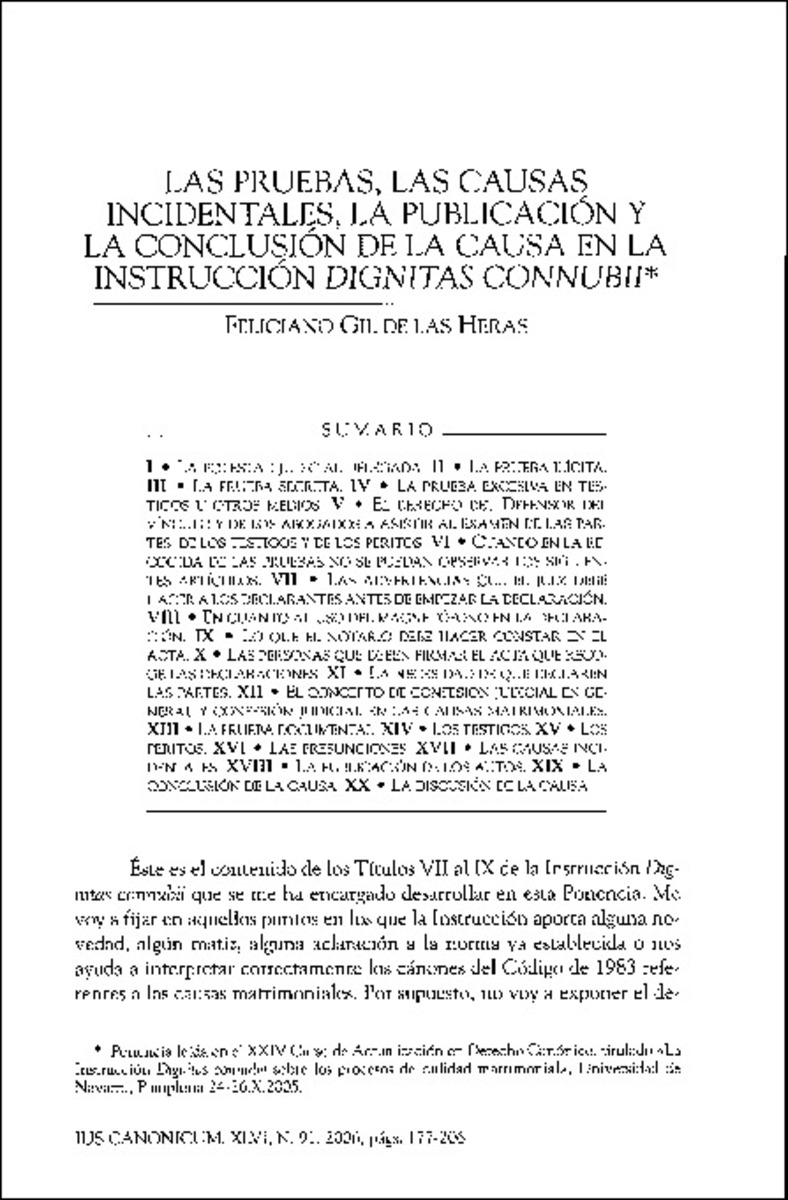Full metadata record
| DC Field | Value | Language |
|---|---|---|
| dc.creator | Gil-de-las-Heras, F. (Feliciano) | |
| dc.date.accessioned | 2011-03-30T18:12:18Z | - |
| dc.date.available | 2011-03-30T18:12:18Z | - |
| dc.date.issued | 2006 | - |
| dc.identifier.citation | IUS CANONICUM, XLVI, N. 91, 2006, págs. 177-206 | es_ES |
| dc.identifier.issn | 0021-325X | - |
| dc.identifier.uri | https://hdl.handle.net/10171/17389 | - |
| dc.description.abstract | The "Dignitas connubii" Instruction confirms the possibility that the judge may admit proof that appears while he is carrying out his labor of gathering proofs. The Instruction obliges the judge to avoid an excessive number of witnesses, and the judge may not permit the presence of the attorneys during the declarations of the witnesses and experts when he considers that the procedure should be held in secret. In the gathering of proofs, any type of fraud, collusion or corruption must be avoided. Other points emphasized in "Dignitas connubii" are that what is understood by judicial confession is very clearly defined, and that truly interesting nuances are added on the subject of preconstituted proof,... | es_ES |
| dc.language.iso | spa | es_ES |
| dc.publisher | Instituto Martín Azpilicueta | es_ES |
| dc.rights | info:eu-repo/semantics/openAccess | es_ES |
| dc.subject | Materias Investigacion::Derecho canónico | es_ES |
| dc.subject | Matrimonio | es_ES |
| dc.subject | Dignitas connubii | es_ES |
| dc.subject | Tribunales eclesiásticos | es_ES |
| dc.title | Las pruebas, las causas incidentales, la publicación y la conclusión de la causa en la Instrucción Dignitas connubii | es_ES |
| dc.type | info:eu-repo/semantics/article | es_ES |
| dc.identifier.doi | 10.15581/016.46.14645 | es_ES |
Files in This Item:
Statistics and impact
Items in Dadun are protected by copyright, with all rights reserved, unless otherwise indicated.






